What You Should Know to Have a Successful Bankruptcy Case
Bankruptcy cases are complex legal proceedings that individuals and businesses undertake when they are unable to meet their financial obligations. It is important to know what are the common factors that influence the outcome of bankruptcy cases as they can have far-reaching consequences, affecting the debtor’s financial future and the satisfaction of creditors.
Various factors come into play when determining the outcome of a bankruptcy case, and understanding these factors is crucial for those navigating the bankruptcy process. While specific factors may vary depending on the jurisdiction and the type of bankruptcy filed, this post will provide a broad overview of the common factors that can influence the outcome of bankruptcy cases.
Bankruptcy cases are highly nuanced, and seeking professional legal advice is essential to comprehend how these factors apply to specific situations. At The Rollins Law Firm, our Mississippi legal team has represented hundreds of clients and helped them get a fresh start. We’ll help you find out if bankruptcy can help you get the debt relief you need and what factors can influence your bankruptcy case outcome. Give us a call today to schedule your appointment.
What Are Bankruptcy Cases?
Bankruptcy cases refer to legal proceedings initiated by individuals or businesses who are unable to repay their debts. Bankruptcy is a legal process designed to provide relief to debtors and establish an orderly method for the resolution of their financial obligations. It offers individuals and businesses the opportunity to either eliminate their debts entirely (Chapter 7 bankruptcy) or develop a repayment plan to gradually repay creditors (Chapter 13 bankruptcy).
A bankruptcy case normally begins with the debtor filing a petition with the bankruptcy court. A petition may be filed by an individual, by spouses together, or by a corporation or other entity. The debtor is also required to file statements listing assets, income, liabilities, and the names and addresses of all creditors and how much they are owed.
The filing of the petition automatically prevents, or “stays,” debt collection actions against the debtor and the debtor’s property. As long as the stay remains in effect, creditors cannot bring or continue lawsuits, make wage garnishments or other collection efforts, including making telephone calls demanding payment.
What Are The Most Common Factors That Influence the Outcome of Bankruptcy Cases?
Here are some factors that may influence the outcome of bankruptcy cases in Mississippi:
- Chapter of bankruptcy: The outcome can vary depending on whether the case is filed under Chapter 7 or Chapter 13 bankruptcy. Chapter 7 involves the liquidation of assets to pay off debts, while Chapter 13 involves a repayment plan over a period of time.
- Income level: The debtor’s income plays a significant role in bankruptcy cases. Mississippi has specific income thresholds and means tests to determine eligibility for different bankruptcy chapters. Income above the threshold may impact the type of bankruptcy available or the terms of a repayment plan.
- Assets and exemptions: Bankruptcy cases involve the assessment of the debtor’s assets. Mississippi has specific exemption laws that allow debtors to protect certain assets from liquidation, such as a primary residence, personal property, and retirement accounts. The presence of significant assets or the lack of exempt assets can affect the outcome.
- Debts and liabilities: The nature and amount of debts owed by the debtor can influence the outcome. Certain debts, like child support, alimony, and tax obligations, may not be dischargeable in bankruptcy. High amounts of secured debts or priority debts may affect the ability to reorganize or discharge them.
- Financial behavior: The debtor’s financial conduct leading up to the bankruptcy filing can be considered. Factors like fraud, misrepresentation, concealment of assets, or excessive spending may impact the outcome.
- Trustee evaluation: The bankruptcy trustee assigned to the case plays a role in assessing the debtor’s financial situation, assets, and repayment plans. Their evaluation and recommendations can influence the outcome of the case.
- Legal representation: Having competent legal representation is crucial in navigating bankruptcy cases successfully. The experience of the attorney representing the debtor can significantly impact the outcome.
Remember, these factors are general considerations and may not encompass all possible variables that can affect bankruptcy cases in Mississippi. Consulting with an experienced bankruptcy attorney who is familiar with Mississippi bankruptcy laws is advisable to understand the specific factors that may apply to your situation.
What Are The Effects Of Bankruptcy?
Bankruptcy carries several consequences that can impact individuals or businesses. While the specific consequences may vary based on the type of bankruptcy filed and individual circumstances, here are some common outcomes associated with bankruptcy:
- Discharge of Debts: One of the primary benefits of bankruptcy is the potential discharge of debts. In Chapter 7 bankruptcy, eligible debts may be completely eliminated, providing a fresh financial start for the debtor. In Chapter 13 bankruptcy, a portion of the debts may be discharged after successfully completing the court-approved repayment plan.
- Credit Score and Creditworthiness: Filing for bankruptcy can have a significant impact on an individual’s credit score. A bankruptcy filing remains on the credit report for several years, making it more challenging to obtain credit or loans in the future. Lenders may perceive individuals with a bankruptcy history as higher-risk borrowers, which can result in higher interest rates or limited credit options.
- Asset Liquidation: In Chapter 7 bankruptcy, non-exempt assets may be sold by a court-appointed trustee to repay creditors. This can result in the loss of certain assets, although exemptions exist to protect essential property, such as a primary residence, vehicle, or personal belongings.
- Repayment Plans: Chapter 13 bankruptcy involves the development of a court-approved repayment plan, where the debtor makes regular payments to creditors over a specified period. Successfully completing the repayment plan can result in the discharge of remaining eligible debts. However, adhering to the repayment plan can place restrictions on the debtor’s financial flexibility during the repayment period.
- Professional and Licensing Implications: Bankruptcy can have consequences for individuals in certain professions or occupations. Some professions, such as law, finance, or certain government positions, may require individuals to disclose bankruptcy filings, which could impact employment opportunities or professional licensing requirements.
- Public Record: Bankruptcy filings are a matter of public record, which means they can be accessed and viewed by the general public. While not everyone may actively search for bankruptcy records, they are available for potential employers, landlords, or others who conduct background checks.
- Emotional and Psychological Impact: The process of bankruptcy can be emotionally challenging and stressful for individuals or businesses. Dealing with financial hardship, creditor actions, and the stigma associated with bankruptcy can take a toll on one’s mental well-being.
Contact Our Mississippi Bankruptcy Attorney Now!
The outcome of bankruptcy cases is influenced by a multitude of factors that must be carefully considered. Understanding these factors is essential for individuals and businesses navigating the complex bankruptcy process. From the specific bankruptcy chapter filed to the debtor’s income level, assets, liabilities, financial behavior, trustee evaluation, and legal representation, each element plays a crucial role in determining the final resolution of the case.
While it is possible to research and gain some understanding of the common factors that influence the outcome of bankruptcy cases on your own, there are several reasons why it is highly recommended to seek the assistance of a lawyer when dealing with bankruptcy.
At The Rollins Law Firm, we ensure that you have professional guidance, protection, and advocacy throughout the bankruptcy process. Our Mississippi bankruptcy lawyers can help you understand the common factors that influence the outcome of bankruptcy cases and provide the necessary experience to achieve the best possible outcome in your specific circumstances.
We serve clients throughout Mississippi including those in the following localities: Madison County including Canton, Madison, and Ridgeland; Forrest County including Hattiesburg and Petal; Warren County including Vicksburg; Lauderdale County including Meridian; Harrison County including Biloxi, Gulfport, Long Beach, Pass Christian, and Saucier; Hinds County including Clinton and Jackson; Jackson County including Moss Point, Ocean Springs, and Pascagoula; and Rankin County including Brandon, Florence, and Pearl.
By understanding the most common factors that influence the outcome of bankruptcy cases, individuals and businesses can make informed decisions, plan for the future, and work towards achieving financial stability. Contact us now to schedule a consultation!

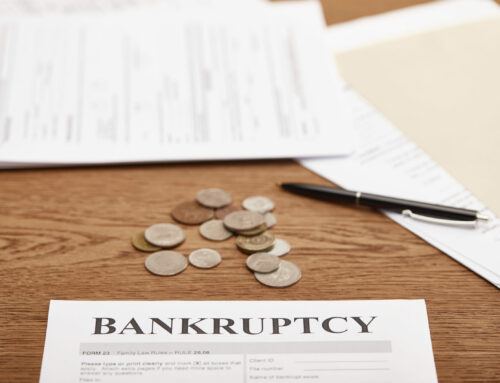
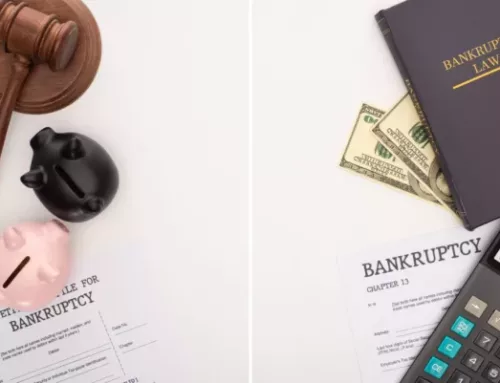
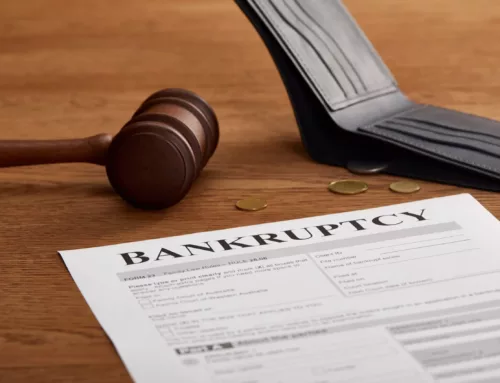
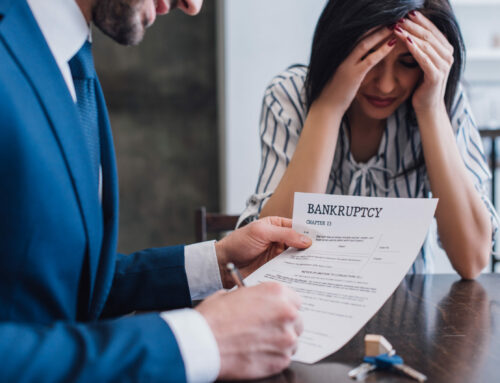

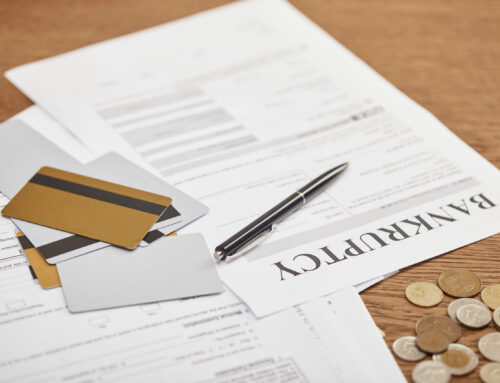

Connect with Us